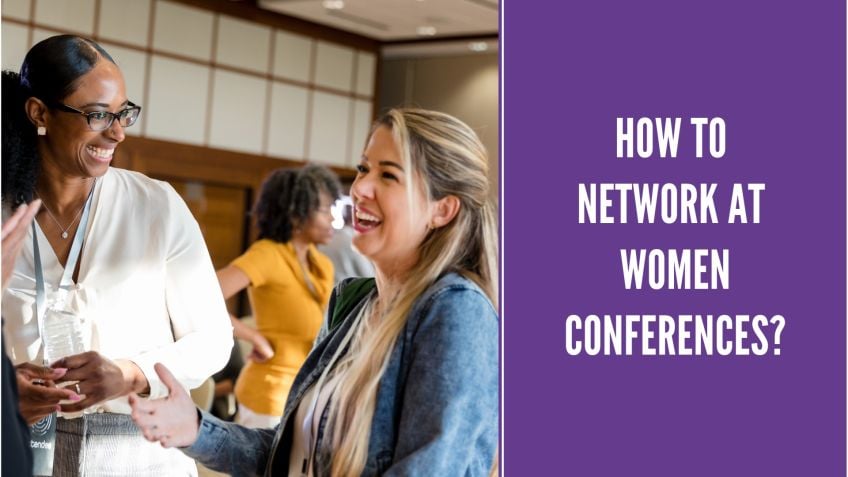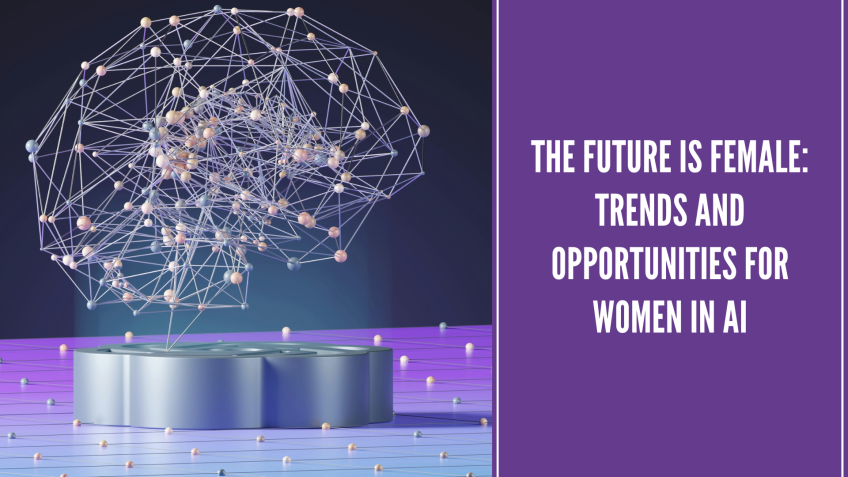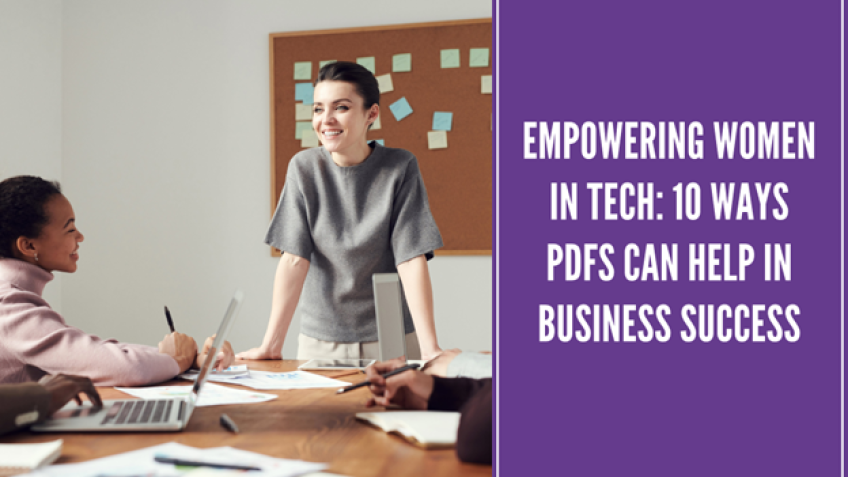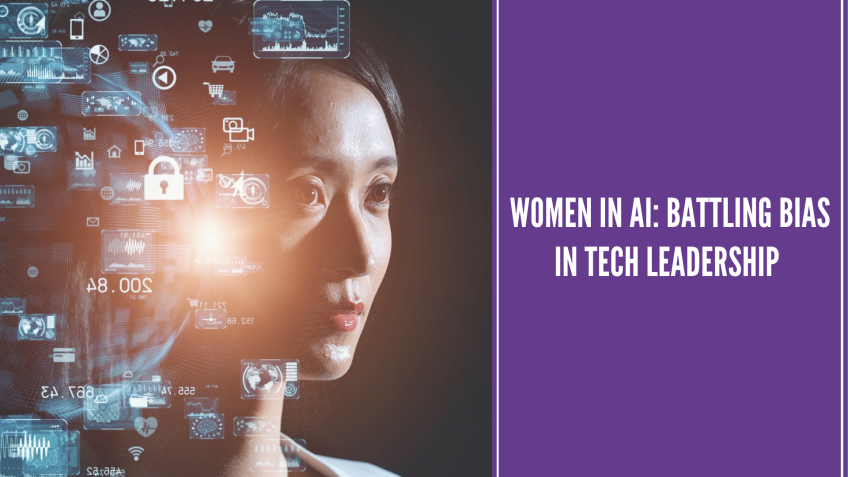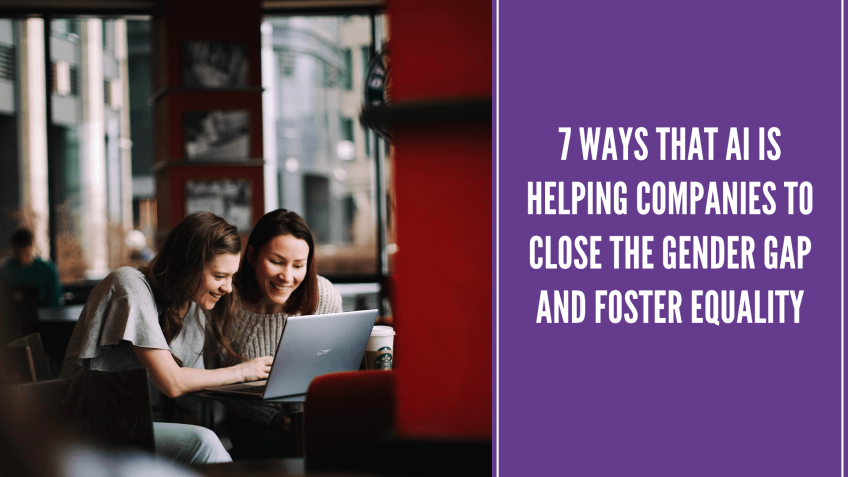Strengthening a Culture of Belonging for Women in the Workplace by Rachel Scheel
Bridging the Gender Gap: Fostering a Sense of Belonging in Women at Workplaces
Gender equality remains a pressing concern in the business globe, with numerous research revealing a stark disparity between the experiences of males and females in the workplace. Particularly, women rarely experience the same level of belonging or ability to bring their whole selves to the workplace as their male counterparts do. Today we dive into this subject in more detail, exploring the 2021 Culture report findings and a keynote by Rachel Sheil, the Senior Vice President for Global Diversity, Equity, Inclusion, and Sustainability at Retail.
The Struggle for Belonging among Women at the Workplace
According to the 2021 Culture report, there is a 9% gap in the overall belonging score between males and females. This gap is an indication that women in the workplace still feel a lesser sense of attachment and inclusion. To combat this disparity, we must delve into the main factors contributing to this feeling of belonging and formulate strategies to support women in the workplace.
Covid-19 and Women in the Workplace
As we survey the aftermath of the Covid-19 pandemic, it's evident that it had significant impacts on gender equality at work. On the one hand, work-from-home options brought about a level of flexibility for women attempting to balance their work with home responsibilities. However, the flip side of these benefits includes increased responsibilities and stresses at home, an upsurge in feelings of isolation, and disturbances in their personal and professional progression. These cumulative challenges have led to an alarming rate of women opting out of the workforce or reevaluating their career decisions.
Moving Forward: Increasing Gender Parity in the Tech industry
Women currently represent only 21% of the workforce in tech-related roles. What's more alarming is that 76% of women and ethnic minorities in tech don't feel a sense of belonging at work. Furthermore, 90% of organizations find it challenging to implement inclusion practices within technology teams and this needs to change.
- Speak Up: Women want to feel safe to voice their opinions and ideas without fear of rebuke or rejection.
- Respect and Recognition: A workplace culture that acknowledges and respects the unique individuals and identities of women is key.
- Support for Career Advancement: Organizations need to empower women to grow in their careers, assuring them that having an ambitious career and a fulfilling personal life are not mutually exclusive.
- Create a Safe Environment: A safe space where women can bring their true selves to work is fundamental to workplace belonging.
Conclusion
While the statistics paint a grim picture, they also present an opportunity. A robust focus on gender equality in workplaces, particularly in the tech industry, requires intentional and actionable steps toward change. By harnessing technology to foster inclusion, accommodating flexible work arrangements, and creating pathways to help women thrive, we can begin to bridge the gap. As individuals and organizations, we must understand that women in technology are powerful; they are innovative, empathetic, and bring unique perspectives that drive progress in the industry.
Let's move beyond the statistics and ensure our actions uplift women, fostering a sense of belonging at work and creating a dynamic, diverse, and inclusive tech industry that truly reflects the society we live in.
Video Transcription
Today. And I'm super excited about our next keynote, gender equality continues to be one of the biggest challenges for business leaders. And much research showing that women tend not to feel the same sense of belonging as their male counterparts by bringing their whole selves to work.
A recent survey in the 2021 culture report on belonging at work reinforced this revealing that 9% gap on the overall belonging scored between males and females. In our next keynote Rachel Shiel, senior Vice President for Global Diversity Equity Inclusion and sustainability at retail would explore key drivers for belonging and how we can support women in the workplace to feel a greater sense of belonging, helping them to be their best selves at work.
Rachel is passionate about all things talent, people and culture and has a breadth of hr executive level experience operating across large complex organizations. Hi, Rachel and welcome. Super excited to have you with us today.
Hi, Anna. Thank you so much. I'm really excited to be presenting here at the Global Women in Tech Conference. So thank you for having me.
Yeah, absolutely. Our pleasure and everyone who just tune in or everyone who's already from the very beginning, please feel free to write in the chat whenever you hear something that resonates with you or whenever you have a question, if you have time, we will take at the end of Rachel's keynote and Rachel in your slides.
Enjoy your time at the Global Conference. I will be back at the end of this
session. Thank you. So look again, I'm really excited to be bringing this topic belonging for women in the workplace to this session today. Um I'm the SVP of global diversity, equity inclusion and sustainability here at CRI OA, a media advertising technology company. Um And I've been with CRI O for about 14 months. But as Anna said, my background has been predominantly in hr and over the past couple of years in engagement, culture, inclusion and diversity. So what I wanted to cover today is I want to take you on a little journey. So I want to, first of all, cover belonging, the topic of belonging and the power that belonging has for an organization and why it's so important. Then I wanna cover women and the difference as Anna said, around belonging for women versus men and the research that's showing how this impacts the workforce. And we've all been here through it in the last two years, COVID-19 and, and really what we've seen the impact that's had on women in the workforce and why we need to pay particular attention to belonging, post the pandemic or, or as we, we move through the pandemic to, to the next stage.
And finally, because we are women in tech, I want to cover the tech industry itself. And how do we really invest in gender parity for our industry and how do we make it better for the future? So again, thank you for coming. And um let's start with belonging and we often hear the words inclusion and belonging, interchanged. Um And, and whilst someone feeling included in a company is important, it doesn't necessarily mean that they feel they belong, that they have a purpose that they have that real true connection to, to what they're doing and how it fulfills their, their greater needs. And so as we hear a lot of feedback from women, both internally and externally, we see a lot of similarities in scenarios. So I want you to reflect on some of these scenarios, I'm going to share. So put yourself in these shoes or maybe you have been in these shoes, you're the only female in your team in many meetings, you don't feel heard, your voice isn't respected. And perhaps when you do have something to say you're cut off midsentence or over talked, perhaps you're a busy working mum who's trying to balance it all family and work and every week your regular team meeting is scheduled right on dinner time.
Perhaps you've been there, perhaps you've seen people been there, I guess the question I'm asking is what are we doing about it? Are we doing anything or are we accepting it as the norm? Another couple of scenarios, I hear a lot of feedback on, particularly in the tech sector, you wanna progress your career, but you feel that the odds are stacked against you or perhaps you're going through an interview stage, internal or external, but you don't feel representation on the selection panel.
And again, we hear a lot of feedback around women making decisions on their career based on who they see around them. Who are the role models. Do they see somebody like themselves progressing being sponsored developing. And these are really important decision making points for women.
So that feeling of belonging, again, I wanna talk about our own reflections. We've all had that one experience, maybe we've had more, it could have been a moment or even a longer period of time where we felt we didn't belong. It perhaps could have been at school or at university or perhaps in a sports team or in the workplace or in some kind of event or networking opportunity where you felt excluded, your voice wasn't heard, you didn't matter. And I want you to reflect on how that made you feel. How did it impact your contribution in that of that moment in time? And how did it make decisions or how did you make decisions around your contribution or your future contribution based on feeling that you didn't truly belong. Belonging is absolutely a human need. It's just like the need for food and shelter in many respects. It creates this feeling of acceptance and inclusion that you're part of something more than just yourself, that you're part of a greater purpose. It also contributes to our health, happiness and well being and it creates value. And often when there's setbacks or challenges, you know, you've got someone who's got your back and you're able to get through that a lot better.
And whilst it helps us find similarities between individuals, it also creates a safety in the acceptance of differences and it inspires focus energy, motivation, productivity beyond expectations. And so again, the reality is unless the people inside your company truly feel that they belong, it really doesn't matter how diverse your representation is without that feeling of belonging coming to life, a company can never realize its potential of the talent that they've worked so hard to attract.
So how does this play out for women? As Anna mentioned, the culture report from 2021. So just last year from work life balance to pay equity when it comes to feeling known and feeling included, women consistently report lower results than male. And this wasn't only found in this one report. There are many, many reports and research out there, but this report showed some real results that 25% of women are less likely to feel comfortable sharing a dissenting opinion and 20% are less likely to feel that their unique backgrounds or identities are valued in their companies.
And this creates a sense of exclusion. It starts to impact contribution and it impacts even performance. So you can see where I'm going here. They're calling COVID-19, the result of it the first female recession. And whilst there is a lot of positivity that's come out of being able to work from home, the flexible working hybrid working women feeling that they don't have to try and balance a commute and being in the office with home responsibilities. On the flip side, they're ultimately taking on greater responsibilities at home. It could be the lack of home office set up and feeling isolated from that remote working. We've seen disruptions to healthcare. We've seen ever fluctuating school conditions and pressures coming from the schooling systems as a result of COVID also virtual learning, virtual development, virtual experiences, creating impact on economic difficulties and pressure and the isolation. Whilst the positivity around having the flexibility to work from home, the lack of connection between colleagues, the lack of ability to build trust and relationships is really increasing because people are more likely to stay at home. And so this increased stress and family needs has ultimately seen a delay in the career progress for women. And many women are actually um choosing to opt out of the workforce or change their career decisions.
And we've seen some real results So, due to COVID-19, female job loss rates due to COVID are actually 1.8 times higher than male job loss rates globally. And there's feedback that women are doing 29% more childcare per week than their male counterparts. And again on a global scale, COVID-19 is expected to push an estimated 47 million additional females into extreme poverty which further widens the gender poverty gap. There was a report in accenture that says this could add 51 years to the time to achieve full gender parity.
And that's quite frightening. So where am I going with this? What about women in the tech industry? And again, I wanted to bring this conversation from belonging in women and belonging itself. But now we have a responsibility and as I share these stats and many of you have read these and you know, these stats, I want you to think about what are the intentional actions we can do as an industry to really increase our focus on gender parity. The latest figures globally, women in tech are 21% of the global workforce. So we know the pool of women in tech related roles is much smaller. So what are we doing about that? Again, a mckinsey report showed that 24% of women and ethnic minorities in tech feel that they have a sense of belonging at work. So that's 76% that don't and organizations, 90% of organizations struggle with implementing inclusion practices within technology teams. And what's driving that this country by country breakdown on the left is interesting because of the total labor workforce India being um the outlier here, women are halved. So this starts with how do we a encourage women into it, tech careers and how do we help them to stay and what's driving them out of the tech industry, mid career? And we've seen that too.
So it's not only engaging young talent, early students, colleges, universities, but it's also the career opportunities, the progression. What's gonna help them to feel that their contribution is truly valued and we can work around their personal and, and, and family needs. The simplicity of this is quite interesting.
So what do women want? They want to speak up? They want to feel safe to speak up and be heard and challenged and not feel put down by their counterparts. They wanna feel respected by peers and managers, their voice matters. We can, they want support to advance and grow. And we hear about imposter syndrome. We hear about women looking at a job description and seeing 60% of what they can do and 40% of what they can't, who's the cheerleader for them to help them see that that 40% isn't something that isn't unachievable. If they were to take the plunge on the job, who's telling them that we can do the job differently with a different level of flexibility or balance to help them feel comfortable, to achieve the goals of the job. But achieve the goals of their personal life. They want autonomy, empathy and trust and they want to feel like they're um developing and they have growth opportunities. They wanna be in an environment where they can feel safe to be themselves, to be their true self and their best self at work. And that's about being who you are, women and men are different and that's ok. But we often feel like we have to fit a mold. We have to be like a certain persona. We have to be loud, we have to be aggressive.
We have to be not empathetic, we can't be emotional and we hear that often in performance feedback too. She's too emotional, you know, she, she doesn't deal with stress. Well, we do deal with it differently but every individual does. So how do we create wider acceptance for that?
And the tech industry needs women. We need innovation, we need different ideas. We need different ways of thinking even when we go down to the A I path, how A I really thinks um really navigates um decision making processes on our behalf. We can change that. We have a different mindset. And if we had more women in tech, we'd really encourage and cultivate, cultivate that creativity. But we can only do this with true equality and true diverse representation. So basically, we know COVID-19 has had a huge social financial mental physical impact across all industries, across all individuals, people have been impacted in very different ways. But if we want to support gender equality, we need to see intentional, purposeful, increased efforts to support that.
We need to target specific measures to help women overcome their own social, financial mental physical impacts. And that's the same for both developed emerging and developing worlds. So for me, as I said, I talk about the word intentional because with this, it's not something that we just leave it up to a policy or an all inclusive practice, intentional sponsoring, finding the talent within the organization, taking risks, mentoring being that cheerleader, helping women to identify opportunities where they potentially may not have felt they were even qualified for.
It's about education and internal pathways educating from that very early stage, young students going into colleges, giving them the confidence that this could be a career choice that could give them a great future, increasing that education as people enter the workforce and through the workforce and creating intentional pathways that help women navigate their career internally, part time opportunities, full time opportunities, flexible, working, certainly family planning and parental support.
We know that that's an incredibly important time and women want to balance both and those who are parents out there know that that balance can feel a little bit challenging at times and there's a guilt around it. But how do we remove that guilt? And create acceptance, digital inclusion and technology solutions. So with the world of remote work, how do we create better technology that creates better inclusion, that creates opportunities for people to feel heard time zones, global differences, language differences, even supporting carers and people with special needs and certainly people with hidden disabilities and and that includes people suffering from mental um and social anxiety.
And finally, the world of work has changed. We need to be more flexible, we need to create more working opportunities. Those organizations that are trying hard to go back to five days in the office, it's never gonna be an attractive place anymore because people have worked this way for two years they want and know that they can work flexibly. And with the power of technology choice is important.
Trust is important, trust me to do my job and do it well and do it where I do it best know that I can connect with people just as well virtually as in person. And I'm not saying that in person shouldn't ever happen because there are certainly opportunities where it should. But does it need to happen five days a week, 9 to 5 in an office environment? We know we do well, trust us to do well. And so I'll finally end with women in technology is powerful. We have such an opportunity to shape the future of business. We can share our perspectives, we have creative mindsets, we have empathy and life experiences and this is what we can use to build, use and solve problems using technology. This industry is moving so fast at a pace. If we don't get an organization that is reflective of the society we live in, we're not doing the right thing by our industry. So, thank you very much. I would love to answer any questions if there are, if anyone has any comments. And I'm also on linkedin. So I'd love anyone to connect with me personally to give me feedback on the session. Thank you.
Wow. Thank you very much Rachel. That was a really fantastic presentation. And people are giving you a virtual round of applause here in the chat. They say great points. Thanks for the topic, an amazing session. Thanks for a great insight and I was taking notes myself and something what you said really resonated with me and I think it will resonate also with uh our audience is being a woman in tech is powerful because of our creative mindset, our empathy and the tech industry needs more women for sure.
Yeah, I really love that you asked for feedback. That is really fantastic. So please make sure to connect with Rachel. You can find her in the people tab. If you start searching for her or on linkedin, uh Rachel, you can also feel free to drop your linkedin or I will do that as well. Thank you so much for being with us. We unfortunately, don't have time for the questions from the audience, but I'm sure there will be more questions uh that they will reach out to you one on one and ask something maybe personal or something that they would really want to ask. So that's going to be fantastic. I think more questions are coming. Any, I just said that you can reach out to Rachel directly and ask your question. Thanks for the great question, by the way. Thank you so much Rachel. It was fantastic to have you with us. Have a great day. Stay with us, connect with people as well. And thank you so much once again for being at this conference. Thank
you for having me. Have a great day. Everyone take care.
Thank you.

